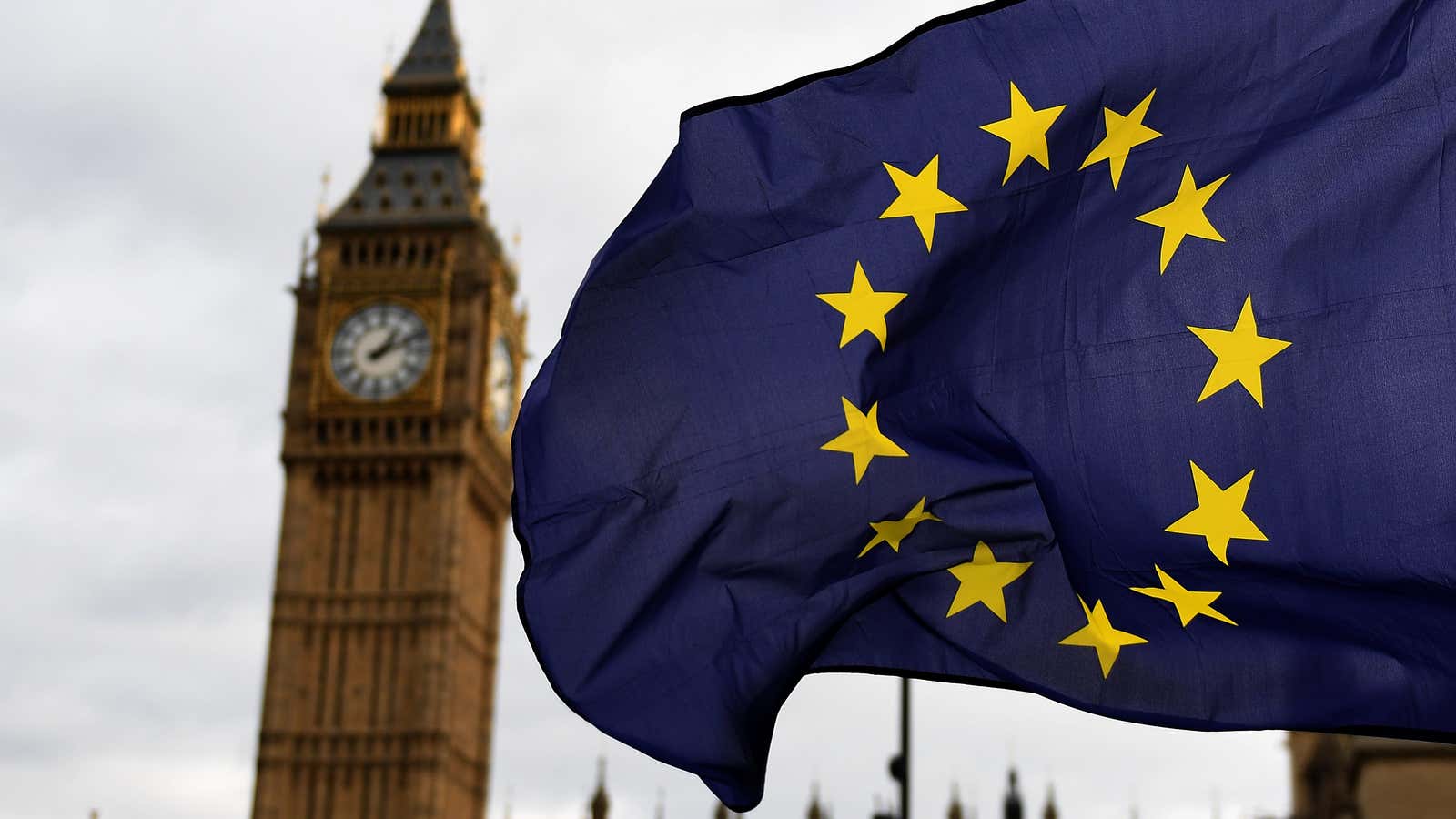Citizens of the European Union (EU) have the right to live, work, and study across the bloc. But that right—known as freedom of movement—will come to an end in the UK in two years time.
The British government confirmed today (July 31) that freedom of movement will end in March 2019, after Britain officially leaves the EU. A spokesperson for the prime minister’s office said it was wrong to suggest free movement would “continue as it is now” once Britain leaves the EU, the BBC reports. The spokesperson didn’t clarify what Britain’s immigration system would look like after the date, saying “it would be wrong to speculate on what these might look like.”
The announcement will likely worry businesses across the country. EU migrants currently make up over 20% of the labor force in at least 18 British industries—from fruit and vegetable processing to the hotel industry—according to the Office for National Statistics. Many are worried that the end of freedom of movement will result in vital vacancies remaining unfilled.
The statement follows days of contradictory messages from government ministers on Brexit and immigration. Last week, Home secretary Amber Rudd told businesses and EU citizens that there will be no “cliff edge” when the UK leaves the block. The immigration minister Brandon Lewis then contradicted Rudd, “insisting freedom of movement ends in the spring of 2019.”
There was even more confusion on Friday, when chancellor of the exchequer Philip Hammond hinted there would be some leeway on immigration. During an interview with BBC’s radio 4, Hammond said there was “broad acceptance” within the government of a transitional deal, from when Britain left the EU and before it struck up a new trade deal with the bloc, lasting up to three years. During this transitional period, Hammond said “many arrangements” would up staying “very similar to how they were the day before we exited the European Union.” However, within a matter of days, trade secretary Liam Fox hit back at the notion there was any consensus on retaining freedom of movement during a transitional deal. Fox told the Sunday Times that senior government ministers were yet to find common ground.
